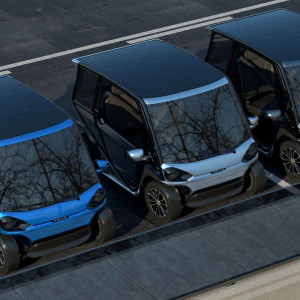Squad unveils a $6,250 sunlight car — It “does photosynthesis” and makes hydrogen look outdated


This new car may replace hydrogen vehicles as the next advancement in the passenger vehicle world. Amidst increasing technological advancement in the automobile and transportation industry, innovators have been looking towards putting futuristic technology on the roads in order to ensure that the world meets its climate objectives and goals to prevent irreparable climate change damage. Now, this one company has a new vehicle which could be revolutionary.
The rise of alternative engine solutions
When thinking about alternative engine solutions, generally, electric vehicles are the first that come to mind.
With the electric plug-in hybrid vehicle currently accounting for the most popular type of alternative engine solution seen on the road, many automobile developers have placed their bets on the electric engine as the way forward for the passenger vehicle world. However, while some have gone all-in on electrical vehicle technology, other innovators continue to produce other alternative engine solutions in order to ensure that all the needs of the transportation industry are met in terms of transforming all sectors towards more sustainable solutions. Currently, the rising complement to the electric engine is the hydrogen engine fuel-cell engine, which is not only already being seen on the road but also provides a solution for those transportation sectors where electric engine technology is not ideal, such as the aviation industry.
While electric and hydrogen fuel-cell technology continue to rise in prominence in the passenger vehicle world, more niche alternative engine technology continues to be on the move, particularly from startups, such as the possibilities of biofuel engine technology. However, this one company has a totally different take on the alternative engine with a vehicle using renewable technology we have not seen on the road.
"Photosynthesis" vehicle to replace hydrogen?
Squad Mobility has taken inspiration from plants, it would seem, which use energy from the sun to generate glucose. Now, the company has created a vehicle that uses solar technology to power it.
The Dutch company has already gained traction in Europe and is now looking to penetrate the US market with its technology, with the car becoming available for US customers this year.
"A solution for urban emissions and congestion, designed for sharing platforms and private use," writes Squad Mobility on their website.
Starting at £6,250 before import fees and taxes are accounted for, the micro-vehicle charges itself by converting solar energy into electricity thanks to solar panels integrated onto the roof of the vehicle. The vehicle would be classified as a 'low-speed vehicle' according to US standards, meaning that it would be limited to urban cruising, with the L7 model boasting a max speed of 70km/hour. The vehicles have a maximum range of up to 100km before needing to be recharged.
Innovation like this highlights to competition to fight for second-place dominance in the alternative vehicle world, a place which hydrogen fuel-cell technology champions[1] are sure to continue to intend to keep a firm grasp on.
States prepare for increased futuristic technology
While automobile developers and innovators continue to produce alternative engine solutions, other companies are setting their sights on advanced futuristic technology, preparing for a world where we may not even need to have drivers behind the wheel of a vehicle. Fully automated vehicles are set to become the next piece of innovation we will be seeing on the roads, and most likely sooner rather than later. Currently, companies such as electric vehicle powerhouse Tesla and Amazon are piloting their fleets of fully autonomous vehicles in Austin, Texas.
Currently, autonomous vehicle technology seen on the roads still requires an active and alert driver. With these new pilot programs, states need to implement new legislation[2] that answers critical questions regarding the ethics of using these cars. Disclaimer: Our coverage of events affecting companies is purely informative and descriptive.
Under no circumstances does it seek to promote an opinion or create a trend, nor can it be taken as investment advice or a recommendation of any kind.
References
- ^ hydrogen fuel-cell technology champions (www.ecoticias.com)
- ^ implement new legislation (www.ecoticias.com)